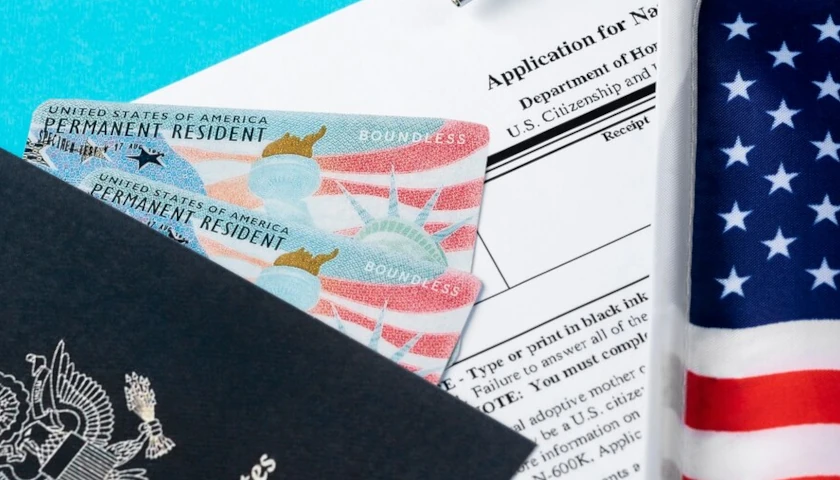by Kerry McDonald
When Massachusetts passed the nation’s first compulsory school attendance law in 1852, parents were mandated to send their children to school under a legal threat of force. Today, that threat remains stronger than ever.
Prior to that law, and those that followed in all other US states over the subsequent decades, cities and towns were compelled to provide schooling for those who wanted it, but parents were under no obligation to use those schools. Many didn’t, choosing instead to send their children to private schools, church or charity schools, “dame schools” in their neighbor’s kitchen, apprenticeships for older children and teens, or to homeschool.
Beginning in the mid-nineteenth century, Massachusetts Board of Education secretary, Horace Mann, and other education reformers who were captivated by the Prussian schooling system and its embrace of compulsion and conformity, convinced legislatures to widen compulsion from municipalities to moms and dads.
There was a broad and open anti-immigrant sentiment, especially in mid-nineteenth century Boston, that paved the way for compulsory schooling statutes in order to inculcate dominant Anglo-Saxon Protestant customs in newly-arrived, predominantly Irish Catholic immigrants.
“Those now pouring in upon us, in masses of thousands upon thousands, are wholly of another kind in morals and intellect,” mourned the Massachusetts state legislature regarding the new Boston immigrants, two years before passing its pioneering compulsory attendance law.
Mann, who homeschooled his own three children while working to mandate schooling for others, explained that strong parental bonds are obstacles to state education. He wrote in his fourth lecture on education in 1840: “Nature supplies a perennial force, unexhausted, inexhaustible, re-appearing whenever and wherever the parental relation exists. We, then, who are engaged in the sacred cause of education, are entitled to look upon all parents as having given hostages to our cause.”
Since their inception, compulsory school attendance laws have been used to criminalize parents—particularly low-income parents and parents from marginalized groups, such as immigrants and racial and ethnic minorities. In the wake of nineteenth century compulsory schooling laws, Catholic parents began sending their children to parochial schools to avoid the overtly Protestant teachings and texts of the purportedly secular public schools.
Compulsory school attendance laws continue to terrorize parents and weaken families. Last week, the Missouri Supreme Court upheld a state law that allows parents of children who regularly miss school to be jailed. The case focused on two single mothers in Missouri who were given jail sentences when their children, who were in kindergarten and first grade, were each absent from school for roughly 15 days during the 2021/2022 academic year.
We may see this criminalization of parents accelerate in the coming months as states and school districts try to find the allegedly “missing” children who have left district schools since the pandemic response began in 2020. Again, it is likely to be low-income parents and those from historically marginalized groups who will be targeted for truancy.
Compulsory schooling is incompatible with freedom, as Thomas Jefferson himself recognized. While promoting broad educational offerings, free to the poor, and noting that a society could not be both free and ignorant, Jefferson opposed forced education. “It is better to tolerate the rare instance of a parent refusing to let his child be educated, than to shock the common feelings and ideas by the forcible asportation and education of the infant against the will of the father,” Jefferson wrote in 1817.
Instead of criminalizing parents whose children miss school, sometimes for heartbreaking reasons such as bullying, we should seek instead to eliminate compulsory schooling statutes and free families from the government’s coercive clutches. In the absence of these laws, a robust, diverse, and decentralized education ecosystem would emerge that would be grounded in consent over coercion and defined by variety over monopoly.
Some states, such as West Virginia, have taken initial steps to loosen compulsory school attendance laws by widening exemptions. More state policymakers should follow suit—or better yet, get rid of these cruel laws altogether.
– – –
Kerry McDonald is a Senior Education Fellow at FEE and host of the weekly LiberatED podcast. She is also the author of Unschooled: Raising Curious, Well-Educated Children Outside the Conventional Classroom (Chicago Review Press, 2019), an adjunct scholar at the Cato Institute, education policy fellow at State Policy Network, and a regular Forbes contributor. Kerry has a B.A. in economics from Bowdoin College and an M.Ed. in education policy from Harvard University. She lives in Cambridge, Massachusetts with her husband and four children.








